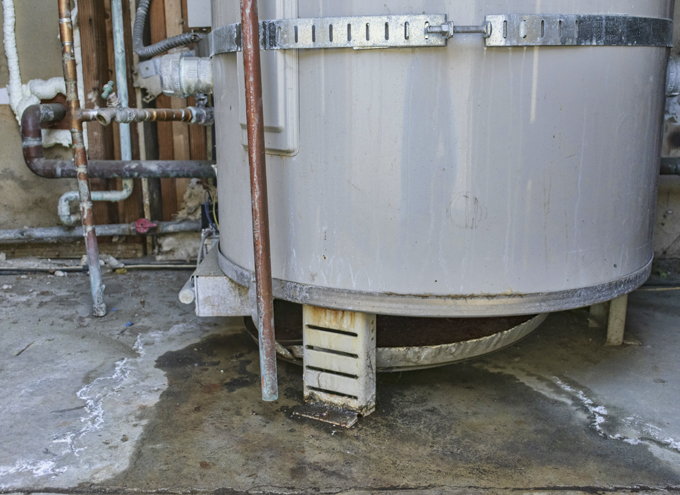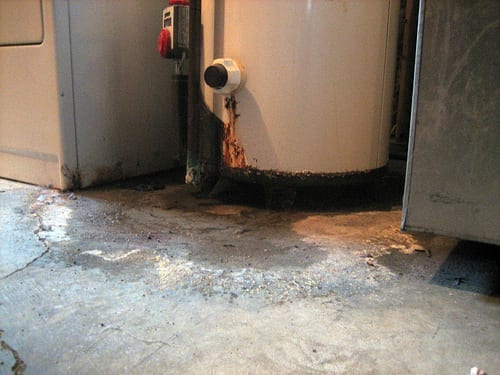Essential Actions for House Owners When Faulty Water Heaters
Essential Actions for House Owners When Faulty Water Heaters
Blog Article
Do you find yourself searching for details on What Do You Do When Your Water Heater Bursts??

Whether it is located in the cellar or a separate room, broken water heating systems can trigger stress. Having no warm water supply is additionally troublesome.
Shut Down Source Of Power
Before calling the plumber, shut off a gas water heater by turning the temperature dial. This will avoid electrocution, especially if there is a leak as water is a conductor. Typically, the heating component shuts off when the water strikes a specific temperature.
Cut Off the Cold Water Supply
Cut off the tanks touch water supply from the source. When your tank is in excellent problem, the cold water stops loading up when the tank is complete. If you can not discover it or reach it, you have to transform off that primary water supply line outside your home.
Call the Plumber
After doing the very first two security actions, you have to call your plumber to come right away to take care of a ruptured water heating unit. There are normally indications that your aging water heating system has debris accumulation in the interior.
Do not wait on major flooding to call the plumber. Already, you will certainly have to spend more to recover your building. Rather, as soon as you identify these indications, have a professional come to examine your hot water heater give thanks to. Normally, hot water heater have a life-span of concerning 8 to 12 years. With normal inspection as well as upkeep, you can extend its life.
Tidy up Building
After calling the plumber, record damage by taking notes and also images so you can claim your property owner's insurance policy. From there, begin the instant clean-up. Take out any essential items to avoid more soaking. Eliminate any standing water to prevent mold and mildew growth. Make use of that to drain the water if you have a submersible water pump. Or else, the traditional pail technique will certainly also work. Attempt to wipe out everything, including baseboards and also wall surfaces. If you have an electrical follower as well as dehumidifier, maintain them going to maintain air circulating. This will help prevent mold and mildew development.
Bear in mind, if you observe any kind of issues with your water heater, call the pros right now. You can not take this problem gently since a defective thermostat can raise water temp to a precariously high level, causing unexpected burns. A damaged heater stress safety valve can also cause a surge. For ideal outcomes, obtain a yearly check so your unit gets checked, cleaned, drained, as well as filled up, assuring ideal efficiency.
Whether it is situated in the basement or a different space, busted water heating units can cause stress. Prior to calling the plumber, closed off a gas water heater by transforming the temperature dial. After doing the initial two safety steps, you need to call your plumber to come right away to fix a burst water heating system. If you have a completely submersible water pump, make use of that to drain pipes the water. Bear in mind, if you observe any concerns with your water heating unit, call the pros right away.
Is My Water Heater Broken?
The Water Heater is Old
No appliance will last forever. This includes a home’s water heater. During its lifespan, residents are going to face a situation where a new water heater installation will be necessary. The biggest problem with this is that most people are not sure when their water heater expires. Not knowing this can lead to serious risks if the unit begins to act up due to old age.
Most makes and models of water heaters will last between eight and 10 years. While 10 years is the age when water heater replacement is highly recommended, the need to replace the unit may occur before this time or after. If the unit doesn’t show any symptoms of a problem, it is a good idea to replace it at the 10-year mark (from the manufacture date).
Some of the symptoms that indicate a new unit is needed include rusting, leaks, noises, and a failure to heat up the water. Also, note that not all units have a 10-year life expectancy. The main exception to this rule is that a gas unit will last for six to eight years.
Rusty Heater Inlet Valve or Water
While steel is the strongest material on earth, it does have a weakness – rust. If corrosion occurs on a steel surface, it will begin to spread and eat through the steel in certain areas. On water tanks and pipes that are made of steel, rust is a warning sign of an impending leak.
The issue for many is trying to figure out if the rust is coming from the water heater or the pipes that lead to the faucet. If rust is seen, it is a clear indication that water heater service from the professionals is needed.
If rusty water appears out of the faucets in the bathtub or sink, it likely means a rusty water heater. If there is rust near the water inlet or the pressure relief valve, rust has likely developed inside the tank. If tap water appears rusty, it may be an issue with the pipes.
Strange Sounds from the Water Heater
Are there strange sounds coming from the tank? As a water heater gets older, rumbling noises may develop and get louder and louder as the water in the tank heats up. In homes where large amounts of hot water are used, the issue is likely going to be even more obvious when more serious issues arise. If there is a strange or loud noise coming from the unit, it is probably because of sediment buildup. A good way to remedy this problem is by flushing the heater. If this does not work, then a new unit may need to be installed.
Leaks
As a water heater gets closer to the end of its useful life, there is a higher chance there will be water around the tank. If there is water, this usually means leaks are occurring. Based on where the unit is located in the home, a leak may result in serious property damage.
Leaks are usually caused by expansions in the metal tank. The expansions occur as time passes and as the inside body of the tank is exposed to multiple heating cycles per day. When a fracture forms, the gap will be slight enough to hold the water in; however, in more serious situations, this will not be the case. If the tank is idle, the water will not leak but when the metal expands during each heating system, small amounts of water will get through the gap.

Do you enjoy more info about Maintaining & Draining a Water Heater? Put feedback further down. We will be interested to listen to your views about this blog posting. We are looking forward to see you back again in the near future. For those who enjoyed our article kindly do not forget to pass it around. We thank you for reading our article about Maintaining & Draining a Water Heater.
We're ready, dial now! Report this page